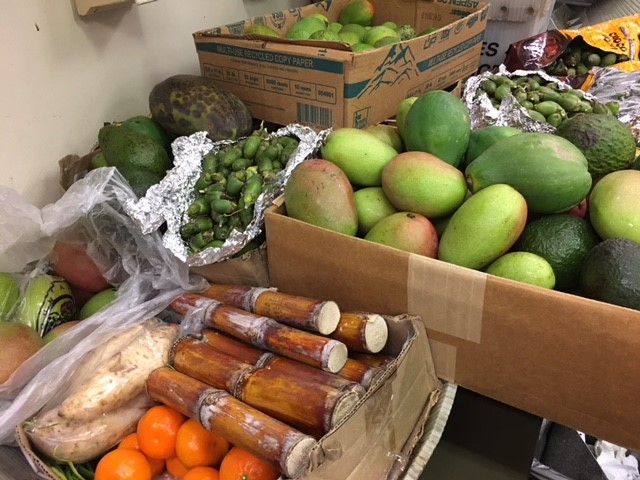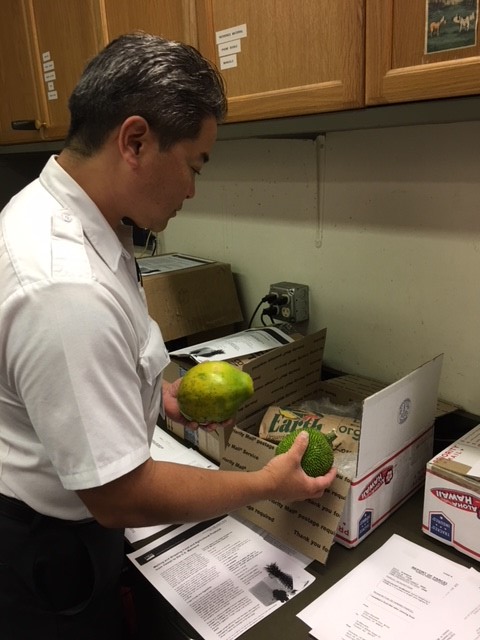
Aloha! I am a Plant Health Safeguarding Specialist based in Hawaii, where my colleagues and I help protect agricultural crops and natural resources on the U.S. mainland from plant pests like exotic fruit flies, Asian citrus psyllid and the coconut rhinoceros beetle. The Animal and Plant Health Inspection Service’s multi-faceted predeparture inspection program supports the movement of travelers, baggage, cargo and mail leaving the Hawaiian Islands, while working to stop the movement of invasive pests.
Many do not realize that the mail is an important way invasive pests can move. To find items prohibited from reaching the mainland by this pathway, trained detector dogs spend nights targeting parcels in search of plant material in transit at Honolulu’s main post office. With their keen sense of smell the detector dogs are over 90% accurate at identifying mailed packages containing prohibited items like fruits, flowers and vegetables. In the morning, the packages that the canines identified are processed for a swift, legal inspection on the basis of the dogs’ expertise. One of the items dogs continually alert on are boxes containing prohibited flower leis.
Everyone knows the lovely tradition expressing friendship, greetings and love with lei. They are regularly seen at weddings and graduations. To help facilitate the safe movement of the flower lei that nurseries and growers ship daily to the mainland, APHIS has a compliance program specifically for lei made of low risk flowers like orchids and ti leaf. Excluded from this program are lei made from prohibited plant material like berries (a host for invasive fruit flies).
Plant Health Safeguarding Specialists don’t just work with detector dogs at the post office. We inspect commodities leaving Hawaii in shipments and we conduct hand inspections of passenger baggage. When inspecting baggage at the airport, any live insects found are turned over to the local USDA Plant Inspection Station for official identification.
We rotate into different roles every three months so we’re well-rounded and fully engaged in supporting the APHIS mission. Most of us enter our roles with a background in plant science, entomology or biology. Then we receive intensive, specialized training to prepare us to work with farmers, shippers, travelers and our state and Federal partners.
And, because we want to spread the beauty and goodwill of the Hawaiian Islands, I will provide guidance for families mailing lei as mementos to remind distant relatives and friends of home. The proper way to mail an allowable lei is to take it to an APHIS Plant Inspection Station to have the item inspected and sealed in your shipping box at no cost. A USDA label will be affixed to the box and you can take it to a post office to mail knowing it will not be delayed by one of our keen-scented canines.
As the 2018 Invasive Plant Pest and Disease Awareness Month draws to a close, one thing we can recognize is that we are all connected through agriculture. We all have a role to play in protecting American agriculture from invasive pests – whether you are a farmer, a shipper, a traveler or you purchase agriculture items over the internet. Every day is a day to be aware of how easy it is to move invasive pests.
Please visit this APHIS predeparture page for more information useful to travelers.




